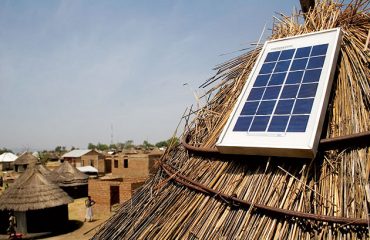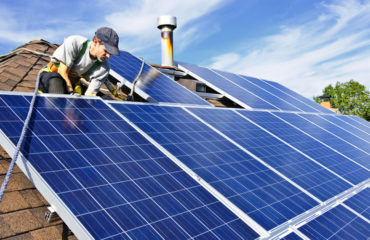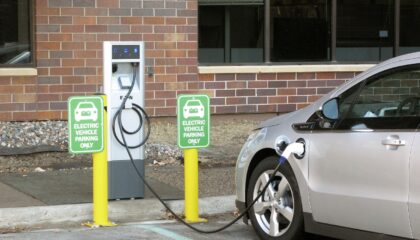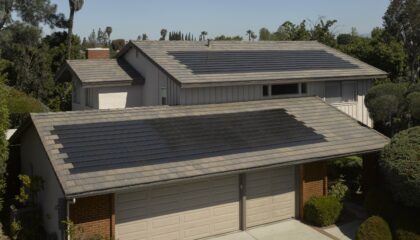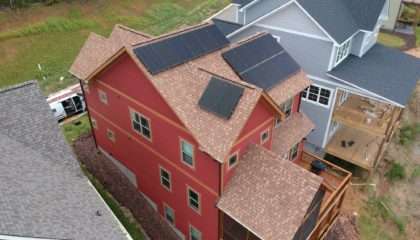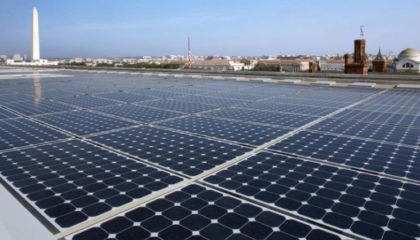In the quest for a sustainable future, renewable energy stands at the forefront of solutions combatting climate change and fostering energy independence. For North Carolina residents, the opportunity to contribute to this green revolution is accessible through Duke Energy’s Net Metering Program. This initiative allows homeowners to generate their clean energy and receive financial benefits for the surplus power they supply back to the grid. Here’s how the program works and why it might be the perfect time to consider going solar with SolFarm Solar Co.
What is the Net Metering Program?
Net metering is a billing mechanism that credits solar energy system owners for the electricity they add to the grid. For residential customers in North Carolina, this program is a gateway to becoming part of the renewable energy landscape. Whether harnessing the sun’s power, embracing the wind, or turning biomass into energy, participating in this program can significantly reduce your electricity bills and carbon footprint.
Key Benefits of the Net Metering Program
One of the primary advantages of the Net Metering Program is the financial incentive. Participants are credited for excess energy produced at the same rate typically purchased, which can offset the cost of energy pulled from the grid when production is low. This symbiotic relationship between homeowners and the utility company fosters a greener environment and promotes energy independence and economic savings. Moreover, by investing in renewable energy, participants contribute to local job creation and reduce greenhouse gas emissions, positively impacting the community and the planet.
Qualifying for the Net Metering Program
To participate in the Net Metering Program, your renewable energy system must meet specific standards, including a cap on its size relative to your home’s energy needs. Due to annual capacity limits, the program operates on a “first-come, first-served” basis, emphasizing the importance of early application. SolFarm Solar Co. can guide you through the application process, ensuring your system meets all requirements and maximizing your investment’s return.
Charges and Credits Explained
Participants in the Net Metering Program will encounter two main types of financial adjustments: the Non-Bypassable Charge and the Net Excess Energy Credit. The Non-Bypassable Charge is a small monthly fee based on the capacity of your solar system, designed to cover the utility’s fixed costs. On the brighter side, the Net Excess Energy Credit rewards you for surplus power produced, benefiting your utility bill.
Example Scenarios of Net Metering Benefits
Scenario 1: Achieving a Balanced Energy Profile with Solar Panels
Suppose that during a sunny month, your solar panels are particularly efficient, producing more electricity than your household consumes. Specifically, your panels generate over 200 kWh beyond your household’s energy needs. Under Duke Energy’s Net Metering Program, this surplus energy is sent back to the grid, and you’re credited for this contribution at a rate of 3.40¢ per kWh, amounting to a $6.80 credit.
In the context of Duke Energy’s billing structure, these credits are applied directly to your account, reducing your monthly fixed costs. Typically, Duke Energy has a set amount for fixed costs to cover the grid maintenance and service availability, which could be considered a minimum charge for access to the utility service. For simplicity, let’s call this the “fixed costs” for your energy bill, which is $28.
Applying the $6.80 credit from your excess generation against the fixed costs, your adjusted bill for the month would now be $21.20 ($28.00 fixed costs—$6.80 in credits). This adjustment showcases how generating surplus energy contributes to a greener grid and directly benefits you by lowering the overall cost of your utility expenses for the month.
As per Duke Energy’s policy, it’s important to note that any credits earned for excess energy cannot be rolled over into the next billing period. Therefore, making the most of your solar investment involves balancing or slightly exceeding your energy consumption with production, ensuring you maximize the financial benefits of net metering while adhering to Duke’s billing practices.
Scenario 2: Using More Power Than Produced
During shorter days or when demand spikes, you consume more energy than your system can produce. In such cases, you draw power from the grid. If your solar system generated 400 kWh but used 500 kWh, you only pay for the net consumption of 100 kWh at a rate of $0.044 per kWh (roughly $4.40), about one-third of the typical rate you would pay.
SolFarm Solar Co.’s Role
At SolFarm Solar Co., we believe in empowering homeowners through renewable energy. Our team specializes in designing and installing solar energy systems tailored to your unique energy needs and goals. We navigate the intricacies of the Net Metering Program on your behalf, ensuring you reap the maximum benefits from your investment. From initial consultation to installation and beyond, we’re your partners in positively impacting your utility bills and the environment.
Consider Solar For Your Home Today
The Net Metering Program offers a win-win solution for North Carolina residents eager to embrace renewable energy. Participating can significantly reduce your electricity bills and contribute to a sustainable future for future generations. If you’re ready to take the next step towards energy independence and environmental stewardship, SolFarm Solar Co. is here to guide you through every phase of your renewable energy journey. Let’s harness the sun together and make North Carolina a beacon of green energy.
Frequently Asked Questions
Q: How do I know if my home qualifies for solar panels?
A: Factors such as roof space, orientation, shading, and energy consumption will determine your home’s suitability. SolFarm Solar Co. provides comprehensive assessments to evaluate your home’s potential for solar energy.
Q: Can I participate in the Net Metering Program with an existing solar system?
A: Yes, if your system meets the program’s standards and requirements, you can apply for the Net Metering Program to start receiving credits for the excess energy you produce. For more information, contact us at (828) 332-3003!
Q: What happens to my net metering credits at the end of the billing cycle?
A: Credits earned for excess energy are applied to future bills. Any remaining credits at the end of the program year can offset charges in subsequent months, maximizing the benefits of your solar investment.
Embracing renewable energy through the Net Metering Program is an environmentally conscious and financially savvy decision. With SolFarm Solar Co., you can seamlessly transition to solar power, ensuring a brighter, greener future for your home and the planet.



